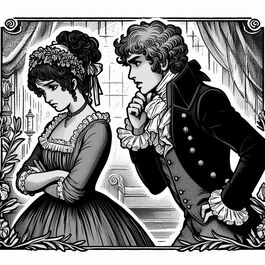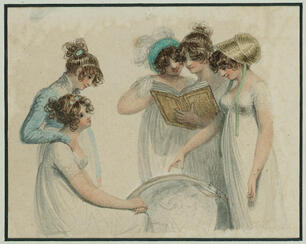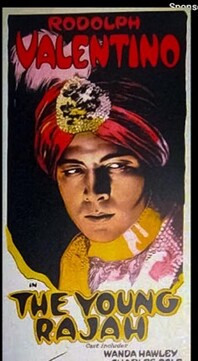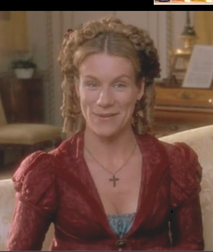| Clutching My Pearls is dedicated to countering post-modern interpretations of Jane Austen with research that examines her novels in their historical and literary context. I also read and review the forgotten novels of the Georgian and Regency era and compare and contrast them with Austen's. Click here for the first post in the series. Click here for my six critical questions for scholars. |
 If you really loved me: Image generated by Bing AI
If you really loved me: Image generated by Bing AI Sir Edward, however, is head-over-heels for Cecilia.
Lord Fanshaw’s own wife Horatia accidentally proves that the lord had a point; when Horatia makes some joking remarks about Cecilia, which are carried back to her by a character helpfully named Tabitha Wormwood, Cecilia is incensed. She demands that Sir Edward cut off ties to the Fanshaws immediately and forever.
Our hero can’t do it; he owes the Fanshaws, especially Lord Fanshaw, “both gratitude and esteem." Cecilia, accusing him of not loving her enough, breaks off the engagement. Sir Edward leaves his affairs in the hands of his steward and goes abroad to heal his broken heart.
Cecilia has many other admirers, including a visiting German count who is a renowned soldier back in the German principality of *****. Count Falkenstein had an “unfavorable opinion” of “women in general, nor could he forbear to express his disapprobation of the freedom which the English ladies, both before and after marriage, enjoyed.”
A little foreshadowing here: we are told that the count is honorable, brave, handsome, and noble, but he expects unquestioning obedience from a wife. After he and Cecelia are married, he writes to his relatives back in Germany to assure them that she is not like the other outspoken English ladies: “My lovely bride has a just conception of the gentle duties of her sex, and adores that nice sense of honor which cannot tolerate the levity too prevalent in a country where the fair sex enjoy almost unlimited liberty,”
So, are we setting up for a story where the heroine realizes, too late, that she threw away a wonderful man and rashly married a tyrant? You might think so. You might assume that the narrator is going to take Cecilia’s side in what follows.







 RSS Feed
RSS Feed